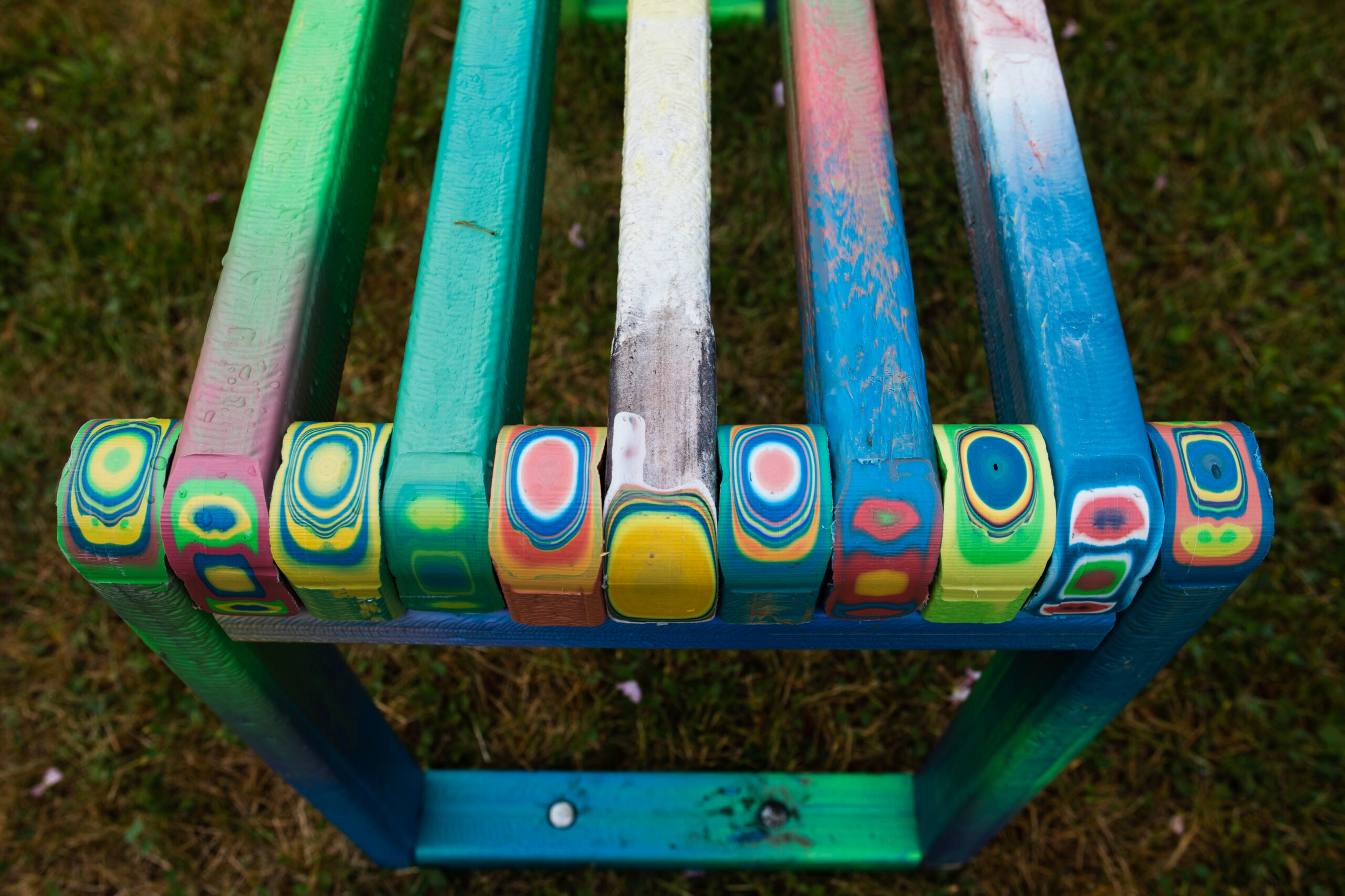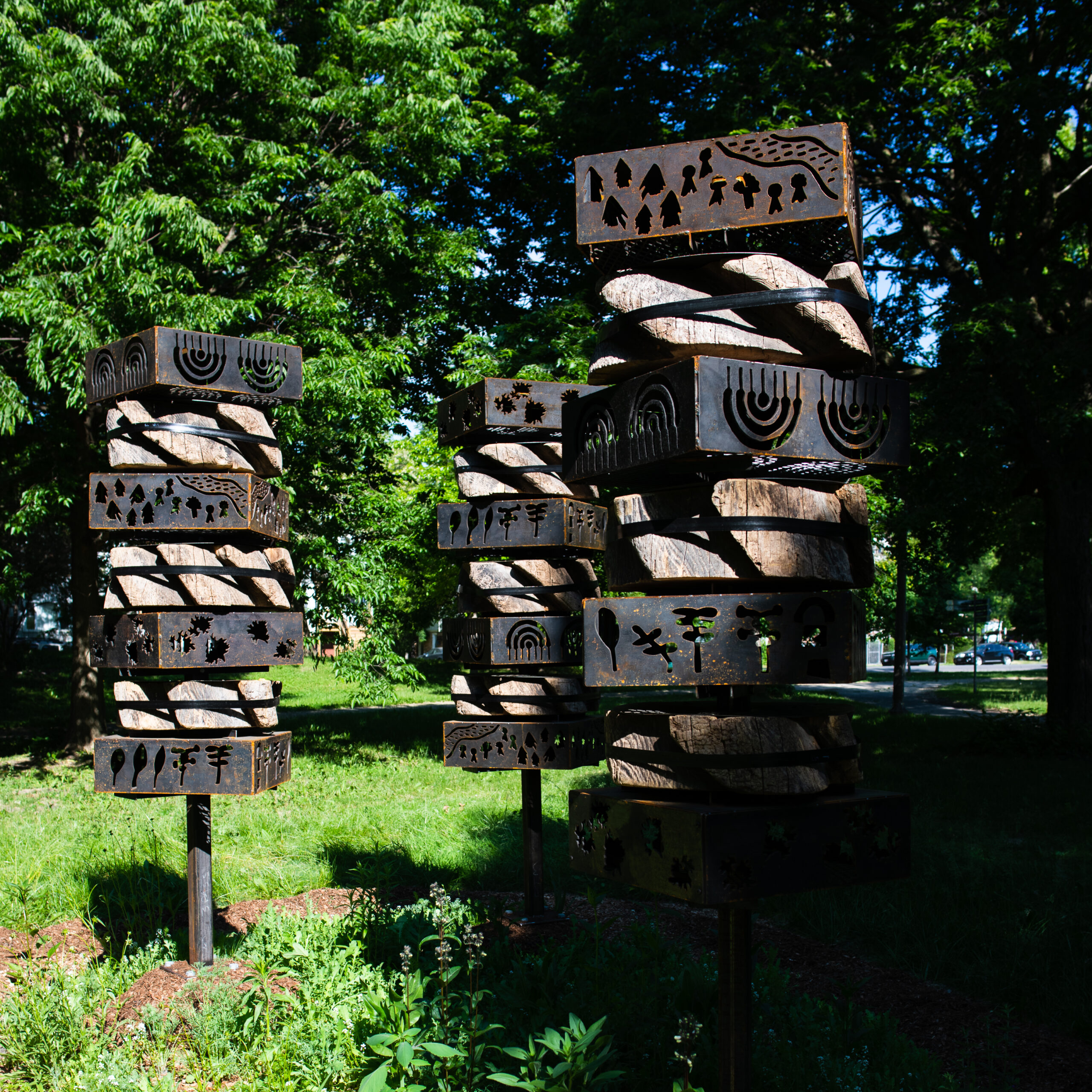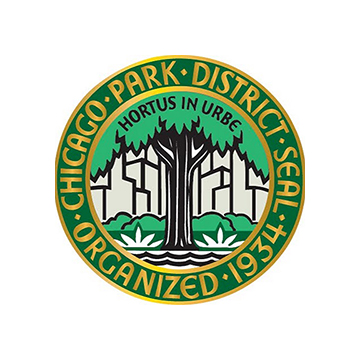House of Kapwa
Alexx Temeña, Andrea Yarbrough / in care of Black women
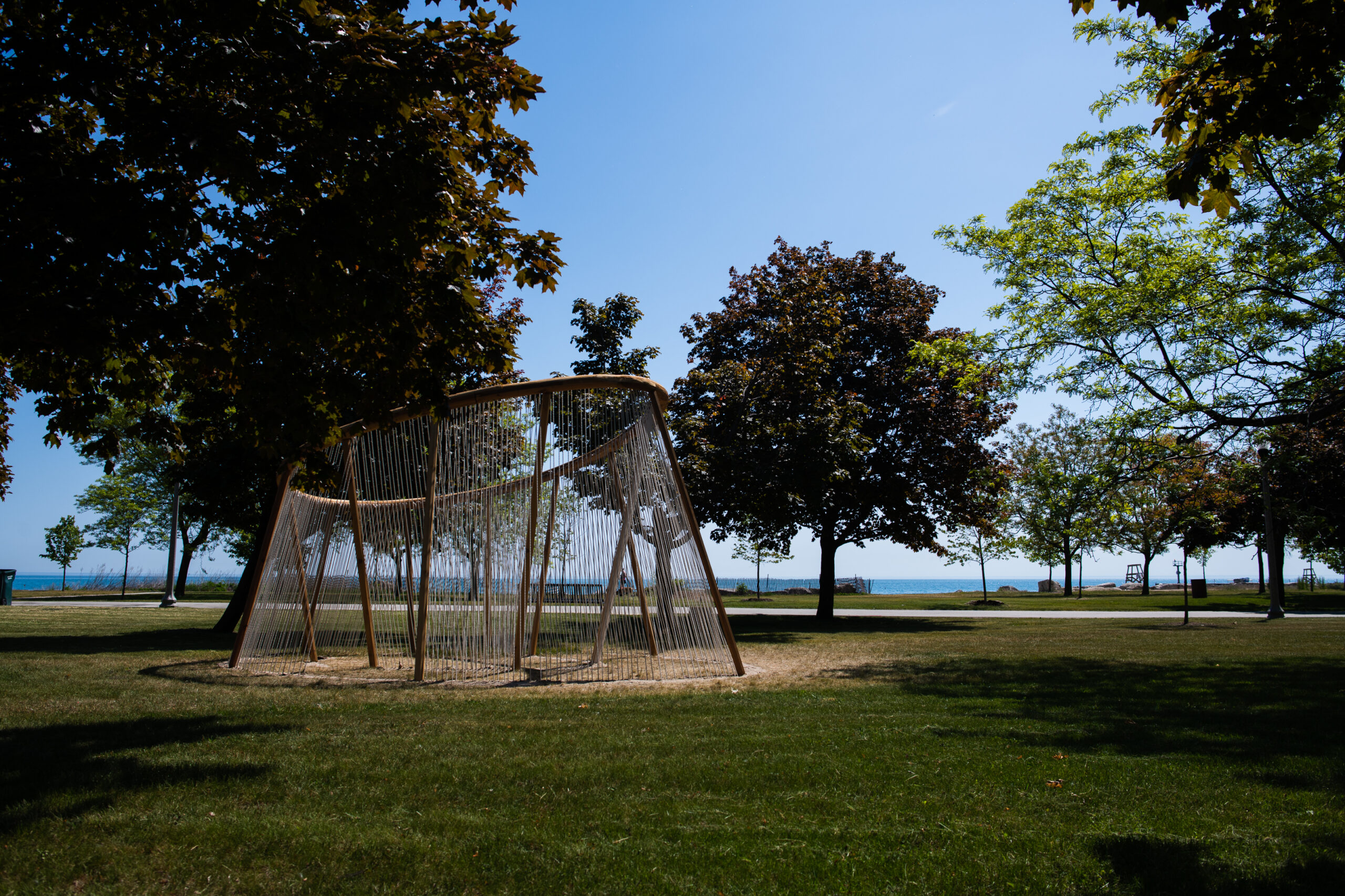
About House of Kapwa
The House of Kapwa is an interactive and ceremonial outdoor public sculpture installation honoring Rest, collective care, ecological grief, and the Filipino indigenous virtue-ethic of Kapwa: shared interconnectedness, or ‘unity-of-self-and-other.’ The House of Kapwa is a space that invites us to sense the relationship between how we care for ourselves, how we care for each other, and how we care for the Earth.
The opening at the top of the structure signifies our connection with our ancestors and the Divine when we engage in the practice of Rest. We are kapwa through time and space; we invite the wisdom of our ancestors to guide us as we nurture our Earth home for our future descendants.
The House features an exterior natural loom that invites visitors to weave plant material and flowers into the structure itself. This symbolizes how we as humans are entangled with our ecology and the more-than-human world, and demonstrates the need for the collective to protect spaces of care and Rest, especially for those who have endured disproportionate levels of ecological, social, political, and colonial violence.
How will we move mountains to protect our Earth future if we do not pause to process the mountains of our unprocessed ecological and spiritual grief? This is a site for us to be held in Rest. A site that calls us into reverence and gratitude as we honor our losses. A site for belonging as we remember we are kapwa.
After the Burnham Park (Oakland / Bronzeville) exhibition period, the sculpture will be reinstalled on a permanent site, serving as a public gathering space in Woodlawn at the First Presbyterian Church of Chicago, both on the South Side of Chicago.
This installation was inspired by the works of Tricia Hersey (The Nap Ministry), the Center for Babaylan Studies, Ate Leny Strobel, Cynthia Alberto, adrienne maree brown, and Bayo Akomolafe. It was seeded at the Haus of Glitter Dance Company + Performance Lab 2020 RESTidency, made possible by the legacy of the Yeredon Centre for the Malian Arts.
Architecture: Roland Knowlden
Fabrication: Building Brown Workshop
Neighborhood: Oakland (Burnham Park / Oakwood Beach)
Art Type: Sculpture / Gathering Space Structure
Grant Amount: $90,000
Media Gallery
Click on each image to enlarge and to see the photo caption.
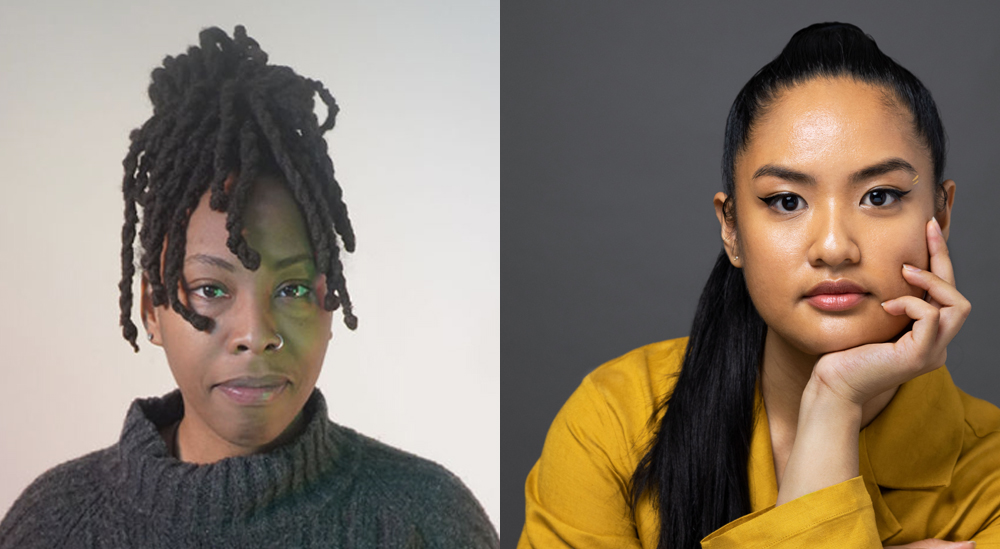
About the Artists
Alexx Temeña is a ceremonial artist, experiential designer, and somatic minister. Her work focuses on creating spaces of Rest, creative intuition, and embodiment for healing our disconnection from ourselves, each other, our ancestors, the earth, and the Divine. She draws on the mediums of visual poetry, photography, movement arts, installation, and public practice. Her latest project, the Kapwa Rest Ceremony, is a community ritual-experience that features multimedia poetic lectures on Rest frameworks and a guided Rest practice accompanied by live music.
She is the artist-leader of the School of Embodied Praxis, a multimedia, participatory project that proposes a future beyond the colonized institution of schooling. For over 10 years, she has been bridging the arts, design, and spirituality to create learning experiences that center mindfulness, anti-racism and equity, purpose, and belonging for schools, teams, and organizations. She has worked with Nike, Onward / BerlinRosen, Project Wayfinder, UWC ISAK Japan, and UC Davis, and has presented her work at Mills College, and Massachusetts Museum for Contemporary Art.
Alexx’s work experiments with the questions: How might we deepen the quality of our Rest? What rituals, structures, and spaces must we build in order to remember our wholeness and nurture sacred belonging? Alexx earned her BA in Contemplative Psychology and BS in Cognitive Neuroscience at Brown University. She is a student in the Master of Divinity program at Chicago Theological Seminary.
Andrea Yarbrough is a multi-disciplinary artist, curator and educator based on the South Side of Chicago nurturing sites of care through a blend of urban agriculture, civic engagement, and art praxis. Her praxis is embodied through the collaborative placekeeping initiative in c/o: Black women (in care of Black women), bringing together writers, curators, farmers, mamas, dancers, organizers, teachers, cultural producers, youth, and visual artists, to collectively exhume the (in)visibility of care for Black women.
Andrea’s process transforms quotidian materials, slated for waste streams, into designed and utilitarian objects that serve as community resources, and incorporates the impact of solidarity and circular economies at the material, individual, and communal scales. By constructing functionally designed objects, cultivating land, archiving and documenting histories of Black women, and curating exhibitions and public programs, her socially-engaged practice exemplifies how communities can reclaim and reconstruct their surroundings while navigating agency and ownership over underutilized space.
Related Events
You May Also Like
ART TYPE: Functional Art
GRANT AMOUNT: $65,000
ART TYPE: Sculpture
GRANT AMOUNT: $45,750
